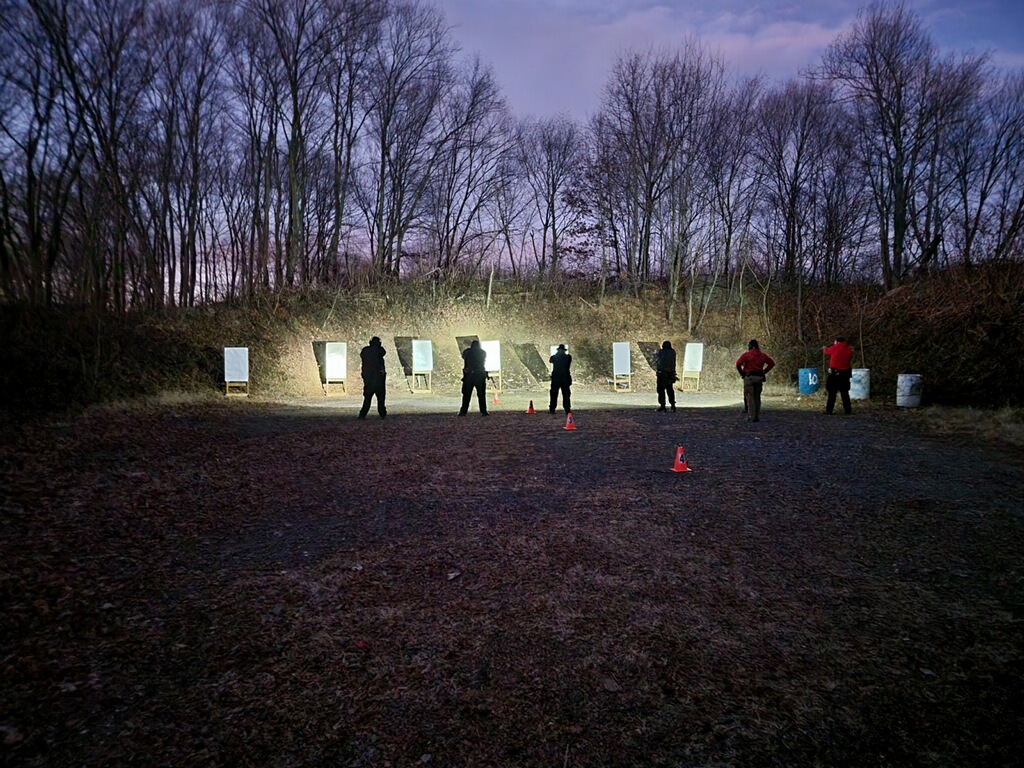The Differences Between Qualified and Mediocre Security Companies
March 6, 2021
There is always a churning cycle in the private security industry. This cycle occurs when one security company fails on a contract and the client immediately tries to replace it with another. This process continues until the client finds one company that will a) provide the best result they seek or b) provide “good enough” service to avoid starting over. A client may even reenter this cycle if a security company fails during a critical incident, thus bringing significant liability to all parties involved.
This is referred to as the rinse and repeat cycle; One of the most problematic aspects of the security industry. This cycle is seemingly never ending and ultimately gives you the same results every single time.
Continue reading to learn:
- What security companies do
- Why this rinse and repeat cycle exists
- How to prevent issues in the future
What does a Private Security Company do?
A private security company provides armed and/or unarmed security services to private and public clients. We can add other elements to these personnel categories (see below for examples), but for simplicity, a private security company officer either carries a lethal weapon, or they do not.
Every client’s needs differ, but a private security companies primary responsibilities fall under two categories:
- Protection of people
- Protection of a building, facility, or similar type asset(s)
The Differences Between Qualified and Mediocre Security Companies
In an industry often overwhelmed with innuendos about inadequate training, incompetence, and references to "rent a cop," "mall cop," and "top flight security of the world,” we think it’s important to understand that not all security companies operate the same. Unfortunately it is not uncommon for both security buyers and security companies to prioritize revenue without regard for results and considerations to risk exposure. However, the focus on just obtaining a contract without regard for results or even personnel is a proving ground for a genuinely flawed system resulting in a loss of time, money, and more notably, the increased exposure to potential harm for all parties involved.
| Valentis | Average Security Companies | |
| Priorities | Identify clients needs and vulnerabilities & tailors security plan to fit those needs | Obtain any contract possible to increase revenue |
| Personnel |
|
|
| Image |
|
|
| Training |
|
|
| Risk Mitigation |
|
|
Courtney Sparkman, CEO and Founder of OfficerReports.com, has been in the security industry for over a decade and has identified the biggest issue, the Security Guard Industry Death Spiral. In a blog published by Sparkman, he explains to us,
"The Security Guard Industry Death Spiral" Customers who buy security guard services blame the security companies for not providing adequate training or staffing posts with guards who are not suitable for the job. They will also blame their guards for not caring enough about their jobs or the duties that they perform. Security guard companies lament that their customers refuse to accept billing rate increases despite almost always having a guard on shift. They also commonly complain that the guards don't care about their jobs or would rather get paid for staying home."
Does this cycle sound a little too familiar to you?
The Most Common Mistake a Security Buyers Make: Hiring Unarmed vs Armed Security Officers
The use of unarmed security personnel in an environment that should utilize armed personnel is one example of how a rinse and repeat cycle occurs. The justification most use |mistakenly| for utilizing unarmed personnel is because there is “reduced risk” for the client. To be correct, the biggest risk comes when the hired security company provides untrained security personnel. Some clients demur the thought of utilizing armed security personnel; Why?The same client would see no issue with a law enforcement officer's possession of a lethal weapon because that officer is trained yearly, qualified, and certified to do so. They may also view using such a weapon within their job responsibility will have no liability to the organization. If there is little to no research done on the subject, it is easy to agree with. The reality is all parties, including law enforcement agencies, are not immune to civil lawsuits or liability within a court of law when lives are taken or injured because of improper use of force.Trained unarmed security personnel serve a purpose and can complete their objectives in various, select environments. However, when there is an expectation that this unarmed security officer will protect people in the face of an active threat, such as an active shooter, or deal with incidents with a high risk leading to violence, this is unreasonable and unattainable. Astonishingly, in this type of situation, security companies will ignore the obvious to win the contract by agreeing in full. You guessed it right; Commence the Rinse and Repeat cycle. Clients who have concerns with vulnerabilities, such as the likelihood of an active shooter threat, and overlook it are one example of a leading cause to the rinse and repeat cycle. They believe that the mere presence of a uniformed, unarmed security officer is enough to alert outside agencies that they are creating a far greater liability for themselves. However, data shows a much different story. Guard911, an active shooter alarm app, reports the following statistics relating to an active shooter event, “. . . notification time can take 10 minutes or more. Most active shooters are finished killing in 5 minutes or less,” “According to the FBI, the average response time has improved to around 3 minutes for active shooter emergencies, but when added to total notification time, it can be 10–20 minutes for help to arrive, depending on their location. Two-thirds of active shooter incidents are over by the time law enforcement arrives.” The Federal Bureau of Investigation (FBI) additionally reports “In 64 incidents where the duration of the [shooting] incident could be ascertained, 44 (69.0%) of 64 incidents ended in 5 minutes or less, with 23 ending in 2 minutes or less.” We share these statistics because the response time from external agencies is solely relied on by both client and private security to eliminate the threat. In other words, most of the deaths and injuries have already occurred by the time interdiction has happened.
A Common Misconception between Armed Vs Unarmed Security Decisions
One more driver that forces buyers of security services to overlook armed versus unarmed when necessary is the traditional argument that evolves from corporate or organizational risk managers. Some believe armed guards will increase the insurance exposure because of the higher risk of having a lethal weapon onsite or send the wrong messaging to the public. When such risk exists in a client environment without proper mitigation, the client absorbs a far greater exposure to liability than maintaining appropriate controls and measures from the onset.
Why “Let’s Hope for the Best” Mindset is Problematic
Unarmed security officers are routinely placed into situations when there is an inherent increase of risk that requires them to deal with many unknowns. The lack of risk management, education, and the drive to get more contracts are the leading reasons behind ignoring the peril. A "let us just hope for the best" thought process is a problematic scenario for both client and security company. The need to plan accordingly to counter threats is essential. The sole dependence on law enforcement departments in the wake of their internal issues because of budgetary cuts, elimination, and expanding the use of strained resources makes public safety a challenge. The latter does not even include the increased threat law enforcement officers stare at daily from external forces who want to eliminate their existence. The scenarios are real and not fanciful opinions.
The Need for Change
Poorly executed security posture and planning that includes, "this is how we have always done it" mindset will suffocate everyone by reality. It will occur when overwhelmed, undertrained, and unqualified security personnel are ineffective, leaving the buyer of security services accountable for not properly securing their site effectively and exposing individuals and structures to unnecessary harm and damage. The criminal opportunist seeks to exploit gaps and vulnerabilities in the security process to accomplish their objective.





